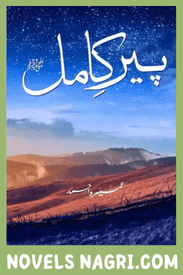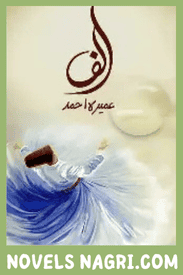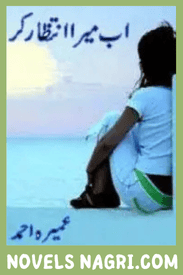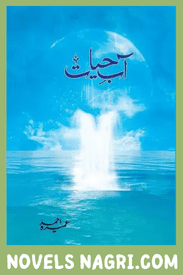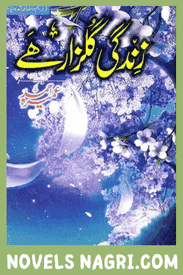Dana Pani Novel- A Complete Guide to Umera Ahmed’s Work
Literature in Urdu has always given readers stories that mix emotions, values, and social realities. Among them, Dana Pani Novel by Umera Ahmed stands out as a story that reflects society’s struggles, faith, and relationships. Just like the celebrated tum jo aaye zindagi mein novel, this book carries strong emotional depth and leaves a lasting impact on readers. It explores themes of morality, spirituality, family bonds, and the constant clash between wealth and poverty.
What is Dana Pani Novel?
The Dana Pani Novel was written by Umera Ahmed, one of Pakistan’s most famous contemporary Urdu writers. Known for works like Peer-e-Kamil and Meri Zaat Zarra-e-Benishan, she often blends romance with spiritual lessons. This novel is no different. It introduces readers to characters who come from very different social backgrounds, yet their lives are tied together by fate, faith, and choices.
Background and Themes
The Dana Pani Novel is not just about love but about society as a whole. It looks deeply into how wealth creates power, and how morality shapes destiny. The title itself means “bread and water,” which symbolizes survival, basic needs, and the simplicity of life. The story reminds us that life is not about luxury but about having what is essential and living with dignity.
Some of the major themes include:
Class differences between the rich and the poor.
Spiritual elements that connect faith with destiny.
Family relationships and the burden of responsibilities.
Love and sacrifice, where characters face tough choices.
Plot Overview
The Dana Pani Novel revolves around two families living in a village. On one side is Chaudhary Karamat, a wealthy man who owns land and controls many poor families working for him. On the other side is Gaamu Mashki and Allah Wasai, who live in poverty but carry dignity and faith. Their daughter Motiya, born after spiritual prayers, becomes the heart of the story.
There are multiple layers in the plot. Readers meet characters like Pir Ibrahim and his daughter Tajwar, who add spiritual dimensions. The romance that develops within the story is intense but also complicated, showing how emotions are affected by social class and expectations.
Characters in Dana Pani Novel
To understand the book better, let’s look at its main characters in a structured way.
| Character | Role in Story | Key Traits |
|---|---|---|
| Motiya | Daughter of Gaamu & Allah Wasai | Pure, kind, spiritual, central figure |
| Chaudhary Karamat | Wealthy landowner | Powerful, provider of bread and work |
| Gaamu Mashki | Poor villager | Struggles for survival, father of Motiya |
| Allah Wasai | Mother of Motiya | Religious, hopeful, loving |
| Pir Ibrahim | Spiritual leader | Guides people with prayers |
| Tajwar | Daughter of Pir Ibrahim | Marries Chaudhary Shujaa |
| Chaudhary Shujaa | Son-in-law of Pir Ibrahim | Wealthy, tied to land and power |
These characters highlight the clash between rich and poor, faith and greed, love and duty.
Social Messages
One reason readers admire the Dana Pani Novel is its powerful social message. It is not only a romantic tale but also a mirror of rural society. The novel raises questions about justice, inequality, and human dignity. Umera Ahmed shows that survival is not about wealth but about strength of character and spiritual belief.
The story also shows how women in rural society face struggles yet carry strength that often changes the direction of life. Characters like Motiya symbolize purity and resilience.
Writing Style of Umera Ahmed
The language of the Dana Pani Novel is simple, emotional, and spiritual. Umera Ahmed writes in a way that touches the heart while also making readers think about society. She balances romance with social issues, which makes the story both entertaining and educational. Her writing style is very similar in tone to piya main teri novel, where love and social realities are deeply connected.
Reader Reception
The novel has been praised by many readers across Pakistan and abroad. People admire how it portrays the truth of life in rural areas. Some critics mention that the romance in the story feels sudden, but most agree that the emotional depth makes it unforgettable. Readers often say that the book leaves them thinking about society, spirituality, and their own relationships.
Why the Novel Stands Out
The Dana Pani Novel stands out because it mixes love, faith, and social commentary in one story. It gives readers characters that feel real, struggles that mirror everyday life, and messages that stay in the heart. Unlike typical love stories, this novel focuses on survival, dignity, and faith.
Comparison with Other Works
Umera Ahmed has written many famous novels, but this one is unique because of its village setting and deep social themes. While Peer-e-Kamil focused more on spirituality and Meri Zaat Zarra-e-Benishan on human betrayal, the Dana Pani Novel blends both spirituality and social criticism. Readers who enjoy novels like tum jo aaye zindagi mein novel or piya main teri novel will also find this book meaningful.
Symbolism in Dana Pani Novel
The title itself is symbolic. “Dana” means grain and “Pani” means water. Together, they represent survival. The author uses this symbolism to show that in life, the essentials matter more than luxuries. For poor families like Gaamu Mashki’s, even small things like bread and water mean the world. For wealthy people like Chaudhary Karamat, power comes from controlling those essentials.
Cultural and Spiritual Impact
The Dana Pani Novel also reflects the importance of spirituality in South Asian culture. Characters like Pir Ibrahim highlight the role of prayers and blessings in people’s lives. Faith is shown as a guiding force that shapes destinies. This aspect of the novel connects with readers who believe in spirituality and divine guidance.
Lessons from the Novel
The story teaches several lessons:
Wealth does not guarantee happiness.
Faith and morality are stronger than power.
Family bonds give strength in times of struggle.
Survival with dignity is more important than living with greed.
More Romantic Urdu Novel
Conclusion
The Dana Pani Novel by Umera Ahmed is a beautiful mix of romance, social reality, and spiritual depth. It is not just a story but an experience that takes readers into the heart of village life, where bread and water symbolize survival, dignity, and faith. Through its characters, it highlights human struggles and shows that true strength lies not in wealth but in values.
For those who enjoy emotional, thought-provoking stories, this novel is a must-read. Just like Umera Ahmed’s other famous works, it proves why she is considered one of the finest Urdu writers of modern times.
